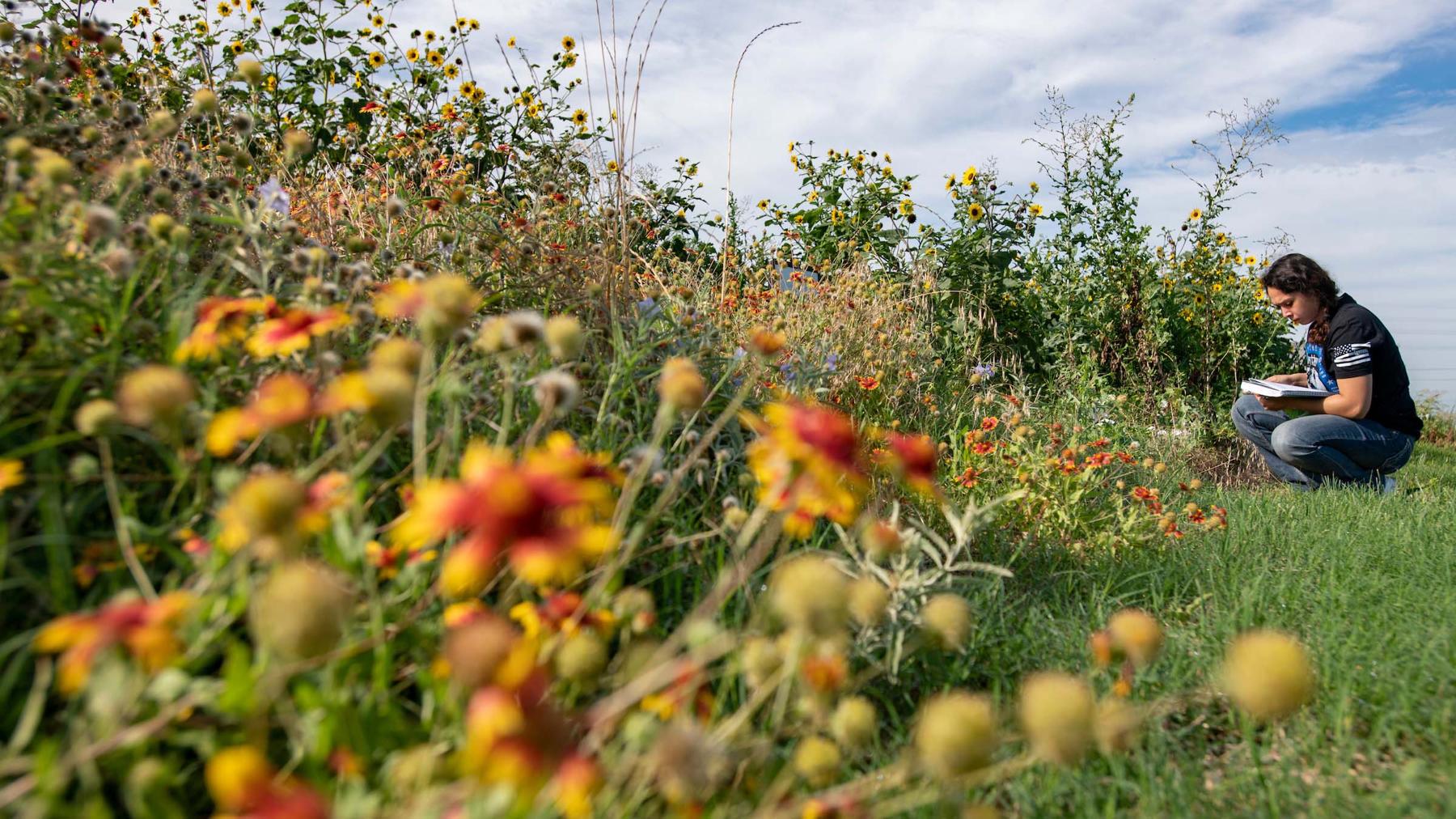
Funding from Diamond Eagles Society will allow faculty and student researchers to enhance their mission of learning and conservation
DENTON (UNT), Texas - The Pecan Creek Pollinative Prairie at the University of North Texas will gain a new pavilion and observational dock thanks to funding from the Diamond Eagles Society.
The Diamond Eagles Society selected the Pollinative Prairie to receive its 2023 funding, totaling $77,500 for a new expansion project — the Diamond Eagles Community and Learning Area. The development will feature a new covered pavilion, observational dock, an accessible walkway and signage.
The Pollinative Prairie is open to visitors who are learning, researching or wanting to relax at the prairie and adjoining pond. Jaime Baxter-Slye is an instructional laboratory supervisor in the UNT Department of Biological Sciences and has served as the staff advisor for the Pollinative Prairie since its inception. She spearheaded the expansion project proposal.
“The pavilion, walkway and dock will provide better access and shade to all who would like to enjoy this wonderful nature area,” Baxter-Slye said. “We are grateful to the Diamond Eagles for their support and partnership. We can’t wait to provide tours and hold classes under the pavilion.”
The UNT Diamond Eagles Society — a network of donors, alumni and community members — vote every year on a high-impact campus project to support. Since 2017, the society has funded five projects, including the Diamond Eagles Garden at UNT’s Mean Green Acres hydroponic farm.
UNT alumnus Jeffrey McLeod (’15), a Diamond Eagles Society member, said he and his wife enjoy being able to support projects that positively impact the campus and Denton community, which they have been part of since 2003.
"My wife and I value UNT and what it represents in the Denton community environmentally, creatively and educationally," McLeod said. "The Diamond Eagles Society is my way of saying thank you. I believe the organization sets an example for current students and the part they can play in ensuring the university continues as a first-class research institution. It also is an extension of the culture and values that I believe I share with the institution."
The Pollinative Prairie began in 2016 as a student-funded We Mean Green Fund project. More than 300 students volunteered about 900 hours to turn a field taken over by invasive grasses into a four-acre prairie supporting native flora and fauna. It now is taken care of by the UNT Pollinative Prairie Committee and student volunteers.
“Working with Dr. Baxter-Slye has given me the opportunity to see firsthand all the levels of biodiversity activity possible,” said Kymie Creswell, a UNT Senior studying ecology and environmental science. “I fell in love with the prairie because there are so many moving parts, there is always something new to see.”
The Pollinative Prairie has received accolades and certifications from multiple organizations, including the UNT Office of Sustainability, the Monarch Watch Waystation, Audubon on Campus and Texan by Nature. More than 900 species of plants and animals have been observed in the prairie.
“The Pollinative Prairie offers a chance for students to gain experience in native land management, prairie restoration and education,” said UNT Senior Chione Lawton, who hopes to one day have a career in ecological restoration. “With this funding, we can spread the knowledge and excitement of our natural world and encourage our peers to love and take care of the area we live in.”
The project is scheduled for completion by June 2024.